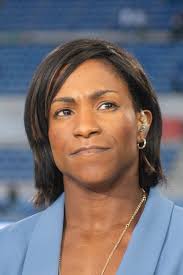
Introduction
Maggie Alphonsi is a name synonymous with women’s rugby in the UK, representing a generation of female athletes who have broken barriers in a traditionally male-dominated sport. Her contributions extend far beyond the rugby pitch, as she continues to advocate for equal opportunities for women in sports. As discussions on gender equality in athletics intensify, Alphonsi’s journey encapsulates the struggle and success of female athletes worldwide.
Career Highlights
Born on December 28, 1983, in London, Maggie Alphonsi quickly made a name for herself in rugby, joining the England women’s rugby team in 2006. As a back-row forward, she earned over 70 caps, playing a pivotal role in England’s victories, including the 2014 Women’s Rugby World Cup. Her outstanding performances earned her the title of World Rugby Player of the Year in 2010, a testament to her skill and dedication.
Beyond the Field: Advocacy and Influence
After retiring from professional rugby in 2014, Alphonsi transitioned into a role as a broadcaster and sports commentator, using her platform to champion women’s sports. In 2021, she was appointed to the Board of Sport England, where she works on initiatives aimed at increasing female participation in rugby and other sports. Her commitment goes beyond rugby, as she often speaks on issues of diversity, mentorship, and the importance of role models in sports.
Recent Developments
In October 2023, Alphonsi was involved in a campaign to promote the Women’s Six Nations Championship, establishing a wider outreach plan focused on increasing viewership and participation among young girls. This campaign not only highlights the competitive spirit of women’s rugby but also seeks to address the significant funding and media disparities that female athletes still face.
Conclusion
Maggie Alphonsi’s journey from a talented player to a powerful advocate for change illustrates the evolving landscape of women’s sports. As we see continued conversations around equality and representation, her voice remains vital in promoting opportunities for female athletes. Looking ahead, her influence is expected to grow, potentially leading to significant advancements in the corporate sponsorship and visibility of women’s sports. The legacy of Alphonsi serves as a beacon for young athletes aspiring to excel, signalling that through perseverance and advocacy, the future of women’s rugby and sports as a whole is bright.
You may also like

Karol G: Trailblazer in the Reggaeton Music Scene

Jack Willis: The Rising Star of English Rugby

The Rise of Harvey Elliott in Football
SEARCH
LAST NEWS
- Remembering Wendy Richard: The Promise to Co-Star Natalie Cassidy
- How Did Anglian Water Achieve an ‘Essentials’ Rating for Mental Health Accessibility?
- Shai Hope Leads West Indies in T20 World Cup Clash Against South Africa
- What We Know About Weston McKennie: Future at Juventus and Past at Leeds
- What We Know About the Upcoming Live Nation Antitrust Trial